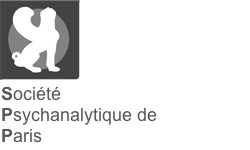|
Résumé :
|
Psychoanalytically informed therapeutic communities constitute an important, but often forgotten, chapter in the history of applied psychoanalysis. Apart from the original experiments by analysts and educators such as August Aichhorn or Homer Lane, little is known about the vibrant and socially progressive nature of residential communities established during and in the aftermath of the Second World War. This article explores the uses of psychoanalysis in four such communities that worked with antisocial children and young people: the Hawkspur Camp, established in 1936 by David Wills and Marjorie Franklin; the Barns Hostel, a hostel for ‘unmanageable’ child evacuees from Edinburgh and Glasgow, active during the Second World War; the Reynolds House, a residential home for boys leaving approved schools who had no home to return to, started in London in 1963; and the Cotswold Community, a residential school for ‘maladjusted’ children in Wiltshire, transformed into a therapeutic community in 1967. Apart from the modifications of psychoanalytic methods made necessary by this environment, a key question posed by these communities is what constitutes healing social relationships at large, and how psychoanalysis can be instrumental in building and maintaining them.
|




